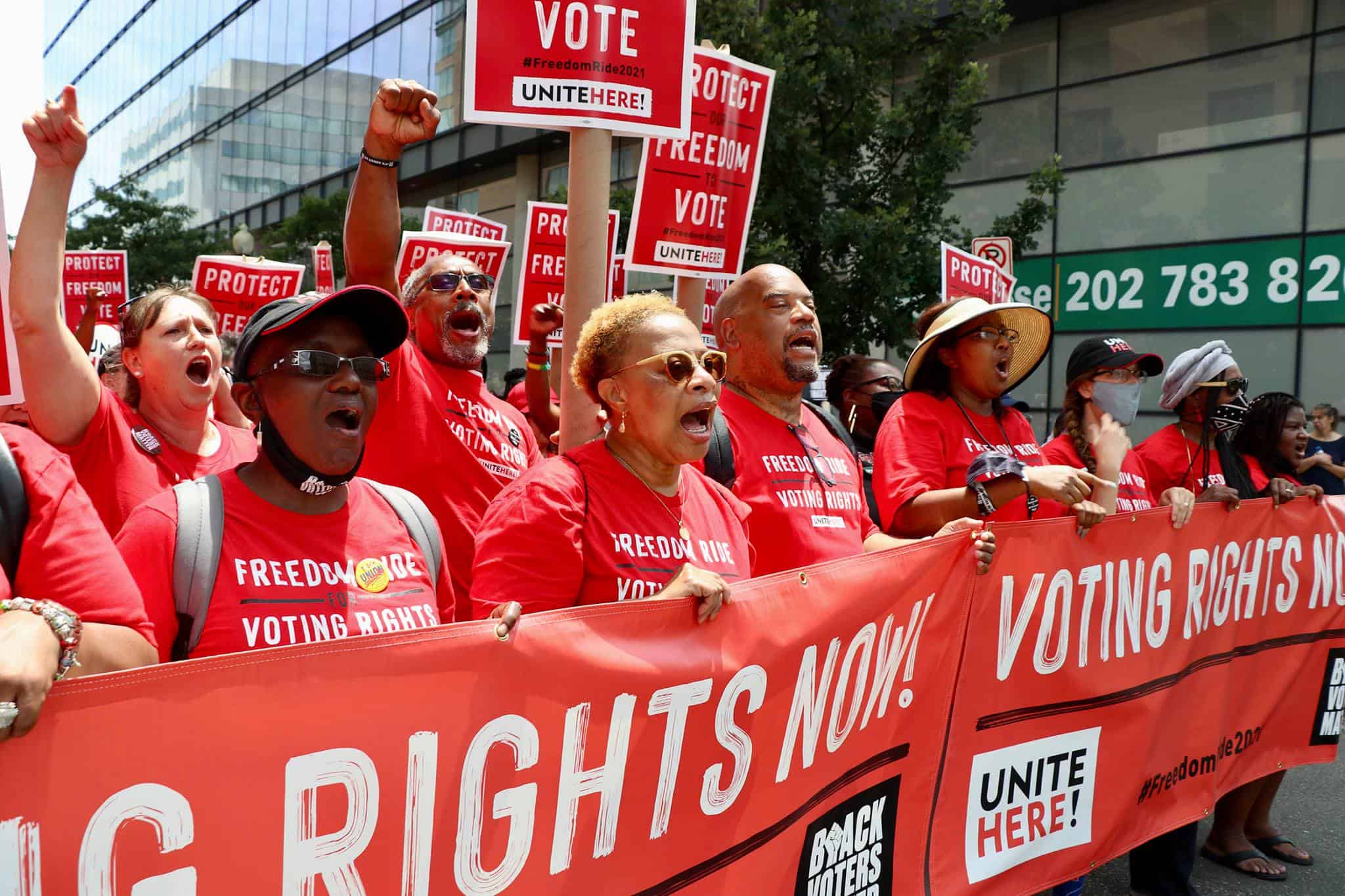Hannah Finnie is a writer in Washington, D.C. interested in the intersections of work and culture. She is a graduate of Harvard Law School.
News has come out that Current Affairs, a socialist magazine, fired all but one of its employees after it became clear the workers were moving towards transitioning the structure of the magazine to a worker co-op. The magazine, according to three of the fired workers, was in need of a more egalitarian and progressive structure, and its staff had been discussing the best way forward for a long time. After a vote on which path to move forward with was finally held, though, and it seemed like a worker co-op was going to be the victor, the editor-in-chief of Current Affairs fired the five employees. The magazine is currently on hiatus.
A new study analyzed the effects that 21 states ending pandemic unemployment assistance early had on the people who had been receiving the additional benefits by studying their banking data. The move wholly eliminated benefits for over 2 million workers and reduced benefits for another 1 million workers by $300 a week, according to the study. The study found that for every eight workers who lost their benefits, just one worker has found a new job since. The study also found that for every $1 of reduced benefits, spending fell by 52 cents whereas only 7 cents of new income was found. Overall, the authors of the study used this data to find that in the early-withdrawal states, spending fell by approximately $2 billion while earnings because of returning to work rose by just $270 million.
Finally, a new article analyzing how Michigan’s workers turned to unions during the pandemic revealed an increase in unionized workers, even despite the overall loss in jobs. Citing Bureau of Labor Statistics data, the article notes that 15.2% of Michigan’s wage and salaried workers were unionized in 2020, up from 13.6% in 2019. This contradicts the overall trend of declining union membership, though there are demographics and job sectors where this isn’t true (young workers, for instance, have increasing unionization rates). The article cites new interest in unionizing in health care settings that helped offset losses in the tourism industry, which has a decent amount of unionized workers.






Daily News & Commentary
Start your day with our roundup of the latest labor developments. See all
February 23
In today’s news and commentary, the Trump administration proposes a rule limiting employment authorization for asylum seekers and Matt Bruenig introduces a new LLM tool analyzing employer rules under Stericycle. Law360 reports that the Trump administration proposed a rule on Friday that would change the employment authorization process for asylum seekers. Under the proposed rule, […]
February 22
A petition for certiorari in Bivens v. Zep, New York nurses end their historic six-week-strike, and Professor Block argues for just cause protections in New York City.
February 20
An analysis of the Board's decisions since regaining a quorum; 5th Circuit dissent criticizes Wright Line, Thryv.
February 19
Union membership increases slightly; Washington farmworker bill fails to make it out of committee; and unions in Argentina are on strike protesting President Milei’s labor reform bill.
February 18
A ruling against forced labor in CO prisons; business coalition lacks standing to challenge captive audience ban; labor unions to participate in rent strike in MN
February 17
San Francisco teachers’ strike ends; EEOC releases new guidance on telework; NFL must litigate discrimination and retaliation claims.